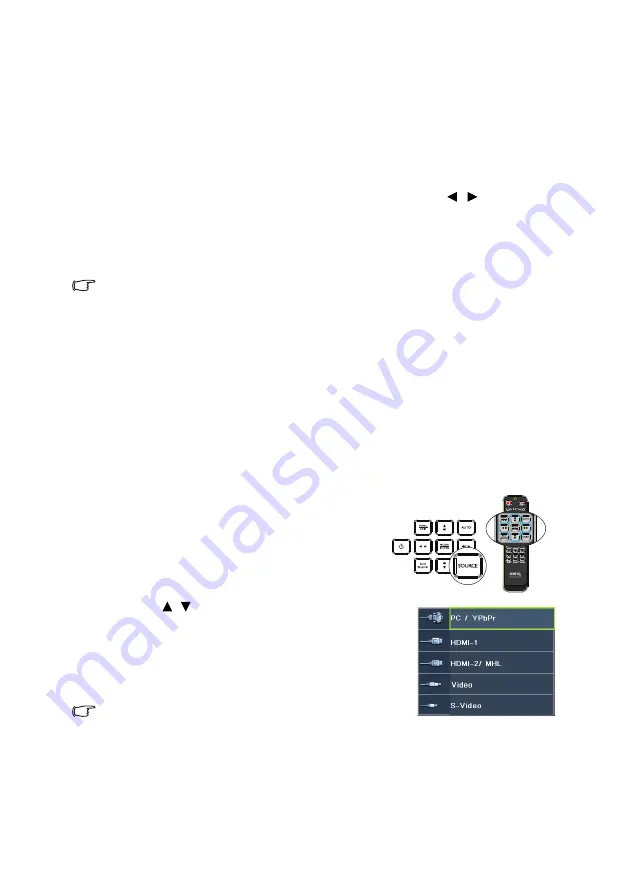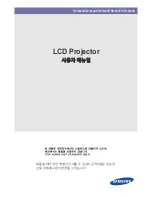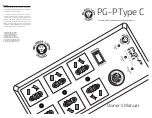
Operation
30
7.
To leave the OSD menu, press
MENU/EXIT.
Disabling the password function
To disable password protection, go back to the
SYSTEM SETUP: Advanced
>
Security Settings
>
Change Security Settings
menu after opening the OSD
menu system and press
MODE/ENTER
. The message
'INPUT PASSWORD'
displays. Enter the current password.
• If the password is correct, the OSD menu returns to the
Security Settings
page. Select
Power On Lock
and select
Off
by pressing
/
. You will not
have to enter the password next time you turn on the projector.
• If the password is incorrect, the password error message displays lasting for three
seconds, and the message
'INPUT PASSWORD'
displays for your retry. You
can press
MENU/EXIT
to cancel the change or try another password.
Though the password function is disabled, you need to keep the old password in
hand should you ever need to re-activate the password function by entering the old
password.
Switching input signal
The projector can be connected to multiple devices at the same time. However, it can
only display one full screen at a time. When starting up, the projector automatically
searches for the available signals.
Be sure the
Quick Auto Search
function in the
SOURCE
menu is
On
(which is
the default of this projector) if you want the projector to automatically search for the
signals.
You can also manually cycle through the available input signals.
1.
Press
SOURCE
on the projector or
remote control. A source selection bar
displays.
2.
Press / until your desired signal is
selected and press
MODE/ENTER
.
Once detected, the selected source information
will display on the screen for seconds. If there is
multiple equipment connected to the projector,
repeat steps 1-2 to search for another signal.
• The brightness level of the projected image
will change accordingly when you switch
between different input signals. Data (graphic) "PC" presentations
using mostly static images are generally brighter than "Video" using
mostly moving images (movies).
• The input signal type effects the options available for the Picture Mode.
See
"Selecting a picture mode" on page 33
for details.
















































